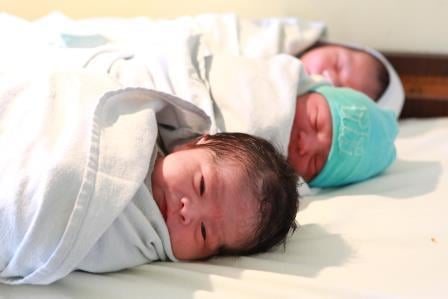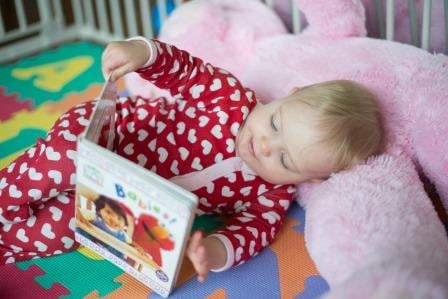From the Mouth of Babes: Do Bilingual Babies Fare Better Than Monolingual Ones?
Young children are truly the lucky ones when it comes to language learning. Their brains are more flexible and adaptable than our grown-up ones and as a result learning multiple languages is easily achievable. If you want to speak like a native, you should start young (although you can learn a language at any age). While an adult’s developed cognitive skills will often make them better language learners, there’s no doubt that children have an advantage when it comes to successfully developing a native accent. But how young is too young? Can your baby start developing the skills for bilingualism or multilingualism, or is it better to wait until they’re a little older? Let’s take a look at a recent study and get down to the nitty gritty of what your baby Einstein can logically achieve.

Image via PhotoPin
Where
It’s no surprise that a study like this would be carried out in Singapore. This island-nation is an extremely multilingual country with most people being able to communicate in at least two tongues. English and Mandarin are the heavy-hitters in Singapore and many start learning both from a very young age. Monolinguals, at least when it comes to native Singaporeans, are rare, which is why it makes sense that scientists would choose to study bilingual babies in such a multilingual environment.
Trying your hand at learning Chinese? Check out our free Chinese placement test to see how your level measures up!
How
The results of the year-long study were released just this month and involved the participation of 72 babies in the experiment. These babies were studied when they were hitting 12 to 13 months which, according to experts, is the age when most children start learning new words. The experiment took a look at how babies responded to tone changes when spoken to in English or in Mandarin. While some were spoken to only in Mandarin, other subjects were spoken to in both languages, allowing psychologist to study how they reacted not only to tones but also how quickly they continued to master the tone system and acquire new words.

Image via PhotoPin
What
Without a doubt, bilingual babies had a head start against babies who were only spoken to in Mandarin. For instance, bilingual babies were able to ignore tones when learning new words in English, but responded to tone changes when spoken to and learning new words in Mandarin. Babies who were only exposed to Mandarin took longer to assimilate the tones into their language use. According to the study, they weren’t able to show any mastery of Mandarin’s tone system until six months later when they were around 18 months old. Furthermore, it became obvious to experts that the myth that bilingual children learn new words much more slowly because they are processing two languages is simply not true. In fact, bilingual babies were able to learn new words in both languages much more quickly than their monolingual counterparts!

Image via PhotoPin
Why
Basically, being a bilingual baby is much more awesome than being a monolingual one. I’m kidding! But in all seriousness, a baby exposed to more than one language is capable of navigating the language rules of both with more ease, whether it comes to understanding new words, learning new words, or, in this case, applying the tonal system of a certain language. So, at the end of the day, two IS better than one (when we’re talking about languages, of course). Being exposed to two languages will give your child a definite jump forward in life. Not only will they be able to easily communicate in more than one tongue from a very young age, but they can learn more languages later in life with much more ease! Maybe it’s time to enrol little Jr. in some baby language classes, huh?
The novel nature of this study cannot be underestimated. While it is often believed that a baby’s development can be thwarted by dividing his or her attention between two languages, these results prove otherwise. It’s never too young to gain exposure to foreign languages, just like it’s never too late to start learning a new one. Maybe you and your tiny tot could take up language classes together!
Do you think it’s a good idea to expose a baby to more than one language? Are you a life-long bilingual or multilingual? Share your thoughts with us!
